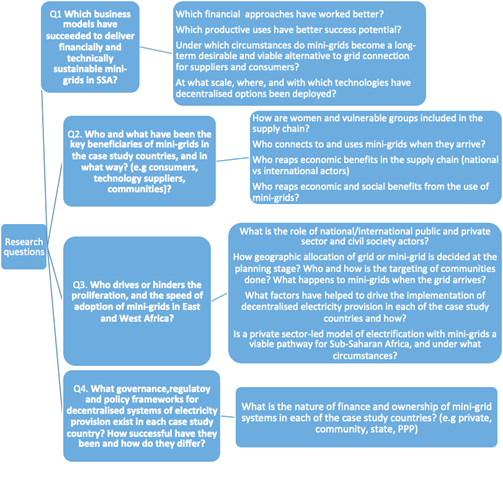Project details

The SIGMA project seeks to provide an applied and analytical approach to uncover the complex dynamics behind the challenges of installing sustainable and inclusive decentralised electricity systems. With comparative case studies from Senegal, Nigeria, Tanzania and Kenya, our key objectives in undertaking this research are to: a) develop an evidence base in the performance of mini-grids in the case study countries; b) undertake an analysis of existing business models and the policy framework in each case; and take forward analytical concepts of the political economy of decentralised electricity systems to understand the political drivers behind differences in the speed of adoption of mini-grids in different countries.
Existing studies have tended to privilege the technical and financial barriers to decentralised electricity access and given limited regards to the significance of the social, economic, political and cultural realities which often determine the success or failure of the technical and financial factors (Ockwell et al 2018). While there have been attempts to address some of these issues, there is a scarcity of longitudinal studies. With no systematic framework for evaluation, it has thus far been impossible to develop programme-level synergies and appropriate planning processes in order to accelerate the electrification process.
This project will therefore reframe the way in which challenges have been approached thus far, and in so doing, generate a deeper inter-disciplinary body of empirical evidence from the case study countries in order to understand the multi-dimensional and context-specific challenges that exist, and the ways in which these may be overcome or mitigated.
See the SIGMA Project Brochure
Based on the above discussion, we have identified four main research questions and a set of sub-questions (Fig. 1). 1) Which business models have succeeded to deliver financially and technically viable mini-grids in SSA? 2) Who and what have been the key beneficiaries of mini-grids in the case study countries and in what way? 3) Who drives or hinders the proliferation and the speed of adoption of mini-grids in East and West Africa? 4) What governance, regulatory and policy frameworks for decentralised systems of electricity provision exist in each case study country, how successful have they been and how do they differ?



